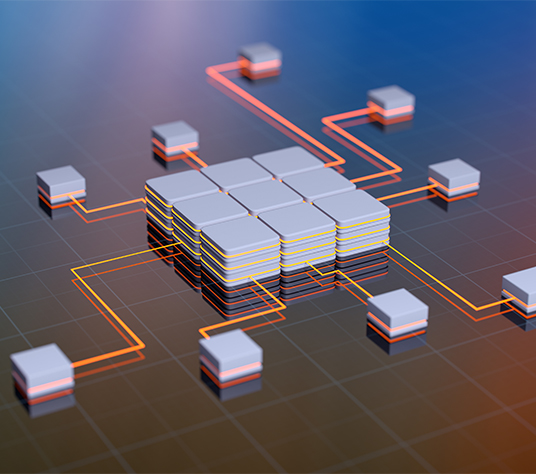Blog Industry: Retail

Connecting the Dots: How Agentic AI Can Help Build Smarter Compliance and Forecasting Pipelines
AI agents are changing how organizations manage compliance and forecasting by automating data orchestration and decision-making. In retail banking, agents help streamline regulatory reporting, reducing manual effort and ensuring real-time compliance. For retailers, AI-driven demand forecasting leverages external data to optimize inventory and respond dynamically to market shifts. Explore how Agentic AI platforms like Agentspace enable organizations to scale smarter, reduce risk, and drive measurable outcomes.
Read More
AI in Beauty: Decoding Customer Preferences with the Power of Affinity Embeddings
The beauty industry is leveraging AI and machine learning to transform how brands understand and serve customers. This blog explores how Customer Product Affinity Embedding is revolutionizing personalized shopping experiences by mapping customer preferences to product characteristics. By integrating data from multiple touchpoints — purchase history, social media, and more — this approach enables hyper-personalized recommendations, smart substitutions, and targeted campaigns.
Read More
How can AI Help Luxury Retailers Unlock a Premium Customer Experience?
The luxury goods market is evolving fast, with customers demanding more personalized, seamless experiences. To keep up, luxury brands are turning to AI to enhance everything from clienteling to product recommendations and customer journey tracking. By harnessing data, AI helps retailers build deeper connections with customers, boost engagement, and increase sales. Read on to know how AI is shaping the future of luxury retail.
Read More
GenAI for ITSM – 4 Ways LLMs Improve IT Ticket Handling and User Experience
Large Language Models (LLMs) are transforming IT service management by automating ticket categorization, improving prioritization, and speeding up resolutions. This article explores how LLMs enhance efficiency, empower users, and support agents in handling complex issues, all while streamlining workflows and improving response times.
Read More
Building Trusted Data: A Comprehensive Guide to Tiger Analytics’ Snowflake Native Data Quality Framework
Challenges in data quality are increasingly hindering organizations, with issues like poor integration, operational inefficiencies, and lost revenue opportunities. A 2024 report reveals that 67% of professionals don’t fully trust their data for decision-making. To tackle these problems, Tiger Analytics developed a Snowflake native Data Quality Framework, combining Snowpark, Great Expectations, and Streamlit. Explore how the framework ensures scalable, high-quality data for informed decision-making.
Read More
Building Dynamic Data Pipelines with Snowpark: Our Framework to Drive Modern Data Transformation
Learn about the challenges of traditional data transformation methods and how a dynamic approach using metadata configuration can help address these issues. By defining transformation rules and specifications, enterprises can create flexible pipelines that adapt to their evolving data processing needs, ultimately accelerating the process of extracting insights from data.
Read More
How to Simplify Data Profiling and Management with Snowpark and Streamlit
Learn why data quality is one of the most overlooked aspects of data management. While all models need good quality data to generate useful insights and patterns, data quality is especially important. In this blog, we explore how data profiling can help you understand your data quality. Discover how Tiger Analytics leverages Snowpark and Streamlit to simplify data profiling and management.
Read More
11 Ways Data Engineers Can Leverage an Agile Mindset to Help Drive Value Efficiently and Effectively
This comprehensive guide explores how Agile methodologies can be applied to data engineering within the Tiger Gene framework. It outlines key principles such as welcoming change, working in small increments, and continuous improvement. The article provides practical scenarios, pros and cons, and solutions for implementing Agile practices in data engineering projects. Data engineers can learn how to drive efficient and effective value through enhanced collaboration, flexibility, and iterative development, ultimately improving their project outcomes and team dynamics.
Read More
Implementing Context Graphs: A 5-Point Framework for Transformative Business Insights
This comprehensive guide outlines three phases: establishing a Knowledge Graph, developing a Connected Context Graph, and integrating AI for auto-answers. Learn how this framework enables businesses to connect data points, discover patterns, and optimize processes. The article also presents a detailed roadmap for graph implementation and discusses the integration of Large Language Models with Knowledge Graphs.
Read More
Connected Context: Introducing Product Knowledge Graphs for Smarter Business Decisions
Explore how Product Knowledge Graphs, powered by Neo4j, are reshaping data analytics and decision-making in complex business environments. This article introduces the concept of Connected Context and illustrates how businesses can harness graph technology to gain deeper insights, improve predictive analytics, and drive smarter strategies across various functions.
Read More

